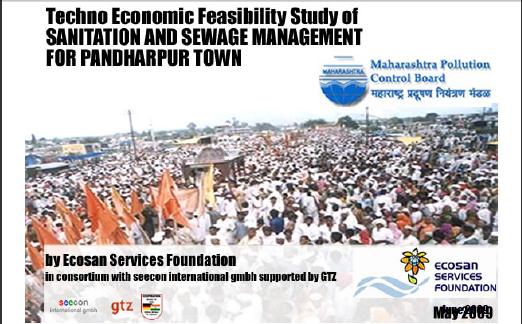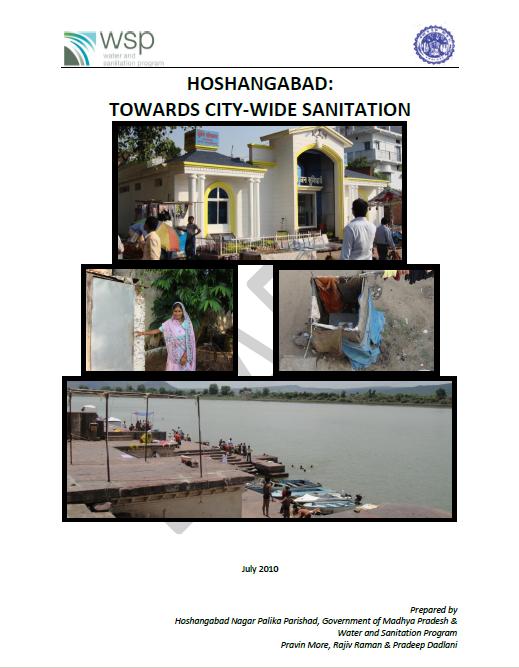Treatment and Purification
Application of Composite Correction Program for improvement in efficiency of water treatment plants - A WHO paper
Posted on 20 Apr, 2011 12:41 AMThe goal of safe and affordable drinking water and sanitation has not yet been achieved. The current practices of water purification are inadequate to produce secured water supply. Maintaining health protection at water supply systems has become more challenging with resistance of some pathogens to disinfection using chlorination and an increase in the immuno-compromised population (e.g., people with HIV, organ transplant patients, the elderly).
In this context, it has become essential to develop various tools such as Composite Correction Programme (CCP) and Water Safety Plans (WSP) to improve water purification and distribution systems, to achieve the goal of providing safe drinking water.
Assessing acute Gastroenteritis risks associated with water quality and sanitation in Hyderabad city - A paper by the Institute of Health Systems (IHS)
Posted on 19 Apr, 2011 11:35 PMThe quality of drinking water is a vital element of public health and well-being. The most effective means of consistently ensuring the safety of a drinking-water supply is through the use of a comprehensive risk assessment and risk management approach that encompasses all steps in water supply from catchment to consumer.
WHO guidelines on water quality term these approaches as water safety plans (WSPs), developed to organize, systematize and apply management practices in drinking-water quality.
Bio-remediation project announced for Buddha Nala, Ludhiana - MoEF Press release
Posted on 13 Apr, 2011 11:14 AMFollowing the invitation of Member of Parliament (Ludhiana) Mr. Manish Tewari, the Hon’ble Minister for Environment and Forests Mr. Jairam Ramesh along with officials of the Ministry of Environment and Forests including the Chairman of the Central Pollution Control Board, visited the site of the Buddha Nala in Ludhiana, Punjab in September of 2010.
Presentations from the Water India conference organised by Confederation of Indian Industry (2011)
Posted on 12 Apr, 2011 11:56 PMThe Confederation of Indian Industry (CII)organised the Water India conference, around the theme “Transforming the municipal and industrial water landscape - Issues, challenges and opportunities".
Techno-economic feasibility study of sanitation and sewage management for Pandharpur town, Maharashtra - Ecosan Services Foundation (2009)
Posted on 10 Apr, 2011 02:15 AM This study provides interventions to solving the sanitation crisis in the holy town of Pandharpur, situated on the banks of the Chandrabagha/Bhima river, in the state of Maharashtra, which receives more than 1.5 crore devotees annually. On any given day there are approximately 20,000 pilgrims in this Class B town. This vast floating population creates massive sanitation problems leading to environmental and hygiene issues. The study forms part of the Maharashtra State Pollution Control Board's 'Environmental Improvement Programme at Religious Places in Maharashtra' project.
This study provides interventions to solving the sanitation crisis in the holy town of Pandharpur, situated on the banks of the Chandrabagha/Bhima river, in the state of Maharashtra, which receives more than 1.5 crore devotees annually. On any given day there are approximately 20,000 pilgrims in this Class B town. This vast floating population creates massive sanitation problems leading to environmental and hygiene issues. The study forms part of the Maharashtra State Pollution Control Board's 'Environmental Improvement Programme at Religious Places in Maharashtra' project.
Hoshangabad - Towards city wide sanitation - A draft report by Hoshangabad Nagar Palika Parishad and WSP
Posted on 10 Apr, 2011 01:57 AM  This proposal prepared by Hoshangabad Nagar Palika Parishad, Government of Madhya Pradesh and Water and Sanitation Programme South Asia, is meant to ensure that every household in this town adopts safe sanitation practices and is to help enable the urban local body, implement a city wide sanitation programme that finally ensures collection and treatment of waste.
This proposal prepared by Hoshangabad Nagar Palika Parishad, Government of Madhya Pradesh and Water and Sanitation Programme South Asia, is meant to ensure that every household in this town adopts safe sanitation practices and is to help enable the urban local body, implement a city wide sanitation programme that finally ensures collection and treatment of waste.
This document is the tenth mile stone in the process of achieving the goal of city-wide sanitation for Hoshangabad.
Plan to make major rivers pollution-free under the NRCP - PIB release
Posted on 18 Mar, 2011 02:49 PMIt covers identified polluted stretches of 39 rivers in 182 towns spread over 20 States. The major rivers covered under the Plan include Ganga, Yamuna, Gomti, Damodar, Satluj, Krishna, Musi, Cauveri and Godavari besides others. Pollution abatement schemes are taken up under the Plan on a cost sharing basis between Centre and States.
Design and manufacture very low cost portable solar powered water distiller (20 litres of water per day) - Dr. Vishwa Narayan of Theertham NGO
Posted on 10 Feb, 2011 01:21 PMDr. Vishwa Narayan, BE(Hons)EEE, MSEE, Ph.D. EE, CEO, Theertham - NGO, registered in Texas, USA, operating out of Bangalore and Chennai, India.
Goal: To design, manufacture, distribute and tech transfer very very low cost (Rs 5000) solar powered water distiller capable of distilling up to 20 liters of water per day, from dirty raw water including salt water.
GRAMICID Food graded disinfectant for water and food Industries
Posted on 07 Feb, 2011 06:07 PMGramicid for Dairy & Ice-cream Industry Sanitation: The Dairy Industry maintains a high growth rate throughout the year. The Quality guidelines enforced upon the Industry are stringent and the product quality can only be generated through continuous Quality Control Measures.
Development of mathematical models for clean up of Cr (VI) contaminated aquifers using bioremediation – A report by Indian Institute of Technology Madras
Posted on 23 Jan, 2011 09:20 PM. In-situ bioremediation is an attractive alternative for this purpose. To achieve this objective, bacterial strains were isolated and enriched from the contaminated site of Tamil Nadu Chromates and Chemicals Limited (TCCL) premises, Ranipet, Tamil Nadu, India.





